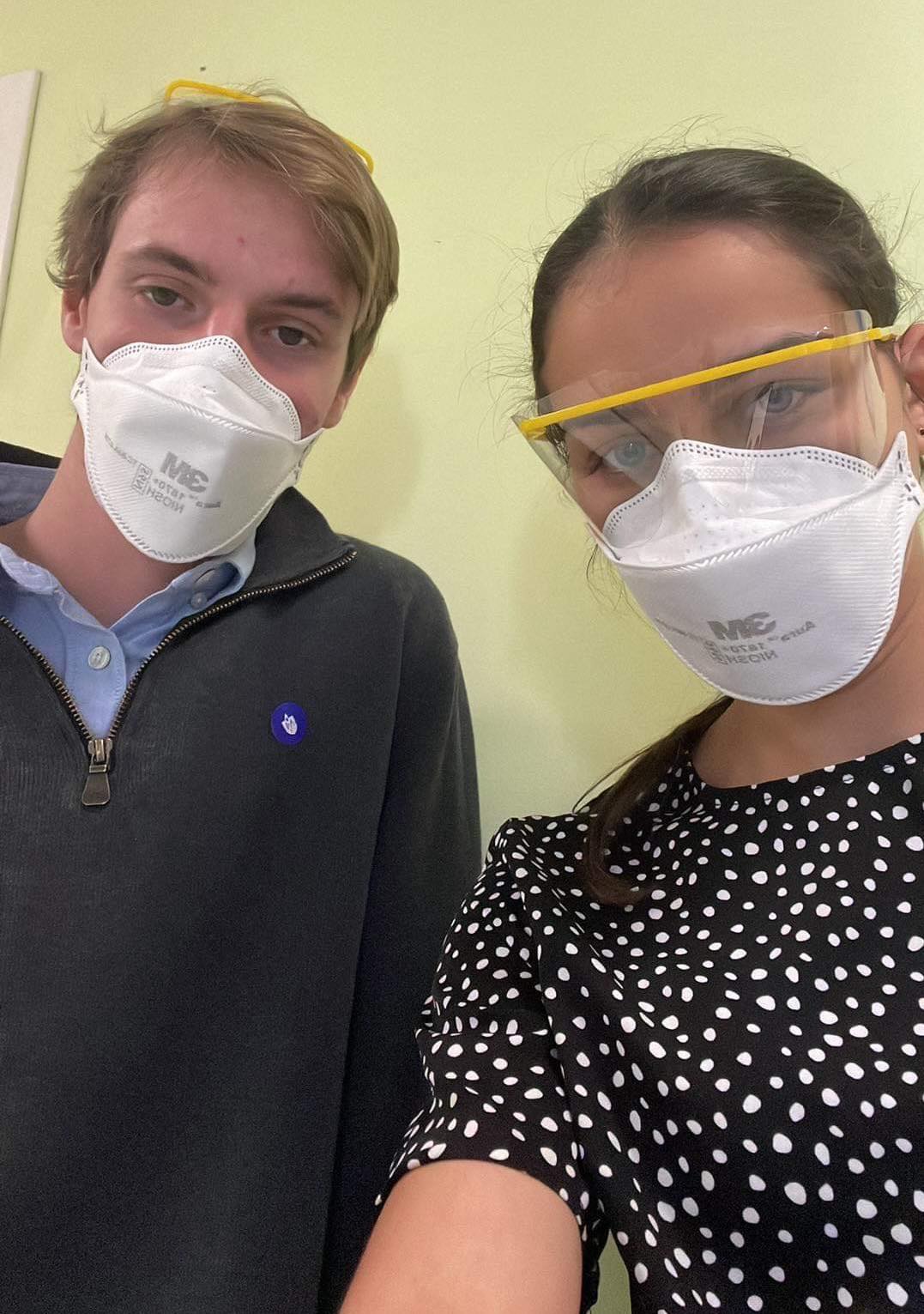Medical students living the Clinical AI dream

Liam and Elisabeth are fourth-year UNSW medical students who are currently undertaking coursework-intensive honours in the Clinical AI program. Liam is researching the relationship between computer mouse activity and mental health status using machine learning. Elisabeth is working with the Centre for Big Data Research in Health to better understand barriers and facilitators of the implementation of AI systems in general practice.
Why Choose Clinical AI?
Early last year we were presented with a unique opportunity for our honours year—a coursework-intensive honours stream focused on clinical AI. As we selected the stream during its inaugural year, we weren’t sure what to expect, but the prospect of becoming data science-literate medical students was convincing enough! Many of our peers have long held a passion for data science or an unexplored ambition to establish a healthcare AI startup and similarly jumped at this exciting opportunity.
Artificial intelligence has been the headline news story of 2023. AI discovered a new antibiotic, Halicin, in 2019, and is already being used in imaging analysis and clinical decision-making. AI offers limitless opportunities to enhance patient outcomes by facilitating a more personalised approach to medical care, decreasing human errors, improving the accuracy and speed of diagnosis, reducing healthcare costs and increasing doctor-patient engagement. As expected with any major technological shift, this excitement has been accompanied with growing uncertainty surrounding what the role of a doctor will look like in the future. Ultimately, technology in medicine is here to stay, and while change in medical practice is inevitable, we think that the impending digital revolution in healthcare offers immense opportunities to healthcare workers and is a cause for excitement rather than pessimism. Doctors will be integral in identifying areas in the healthcare system that can be optimised by technology, and applying and interpreting new technology will become central to the role of medical practitioners.
We see the clinical AI program as an invaluable introduction to this unfolding healthcare transformation and as a fantastic opportunity to understand how medicine and AI will intersect. We aim to not only leverage the power of data science to enhance patient care, but also to contribute to the advancement of medical research and healthcare systems as a whole. This immersive experience allows us to gain a deep understanding of the applications and limitations of AI in the clinical setting, and how it can be harnessed to transform healthcare delivery. The coursework offers us a taste of the necessary skills needed to navigate the emerging landscape of AI in healthcare.

Structure of the Clinical AI program and what we have learned
Alongside our independent research projects, the Clinical AI coursework consists of two courses in each of Terms 1 and 2, taken from the Masters of Health Data Science program. In Term 1, there were four contact hours per week, with a large part of the learning conducted through self-directed modules and activities.
In HDAT9100, we explored the intricacies of data creation in the health system and its utilisation in analysis and research. We learned to think critically about the limitations and biases associated with different mediums of health data and explored creative methods to overcome these challenges. We also looked at how health outcomes could be measured and analysed to identify areas of inequality and create evidence for policy. Understanding the nuances of healthcare data helped us to better understand the structure of the public and private health systems and complemented our clinical experience.
HDAT9300 provided our first formal education in computer programming in the Python language, which was particularly exciting. The course emphasised the importance of code that not only functions correctly, but is also written efficiently and clearly. The assignments in this course were especially engaging as they were themed around health-related problems, such as calculating kidney function, evaluating DNA sequences and analysing patient datasets. This highlighted the broad applications of software in medicine and prompted us to consider the role technology can play in creating scalable healthcare solutions. The course provided a strong introduction to the fundamentals of programming for us to build on in further courses and in our research.
With these strong foundations, we look forward to taking on AI itself in Term 2 and applying this knowledge to our research. HDAT9500 will introduce us to machine learning and data mining, while HDAT9000 will explore the opportunities and boundaries associated with applying AI to healthcare, as well as the complicated ethical, social and legal issues that arise in this space.
What We Have Enjoyed About Clinical AI
One of the most rewarding aspects of the Clinical AI program has been the opportunity to expand our problem-solving abilities through coding. The assignments and projects have encouraged us to think analytically and creatively, applying our programming knowledge to health-related problems. This practical approach has sparked our curiosity about the broad applications of software in medicine and equipped us with the fundamental technical abilities necessary to tackle real-world healthcare challenges.
The flexibility of the program has also stood out. While there are structured contact hours every week, a significant portion of the learning is independent study that can be completed on your own time. This flexibility has provided us with a lot of freedom in choosing our research project and allowed us to explore topics of personal interest within the realm of clinical AI.
Collaboration has been a central part of the clinical AI journey and has greatly enhanced our experience. The coursework fosters a supportive learning environment through team-based projects and group discussions. This reflects the reality of the healthcare setting, where teamwork is essential for achieving stronger outcomes.
Challenges
One of the main challenges we have encountered during the Clinical AI program is finding a balance between our research projects, which have longer-term deadlines, with the more immediate demands of the coursework. Weekly assignments alleviate the stress of end-of-term exams but require a consistent and organised approach to coursework that must be maintained.
Taking on the challenge of the coursework-intensive Clinical AI honours program has been well worth it. It’s been satisfying to see our knowledge and skills grow substantially in just one term and we are looking forward to what this new term has to offer as we continue to learn how to navigate the fascinating intersection between medicine and technology, which will only continue to converge in the future.
